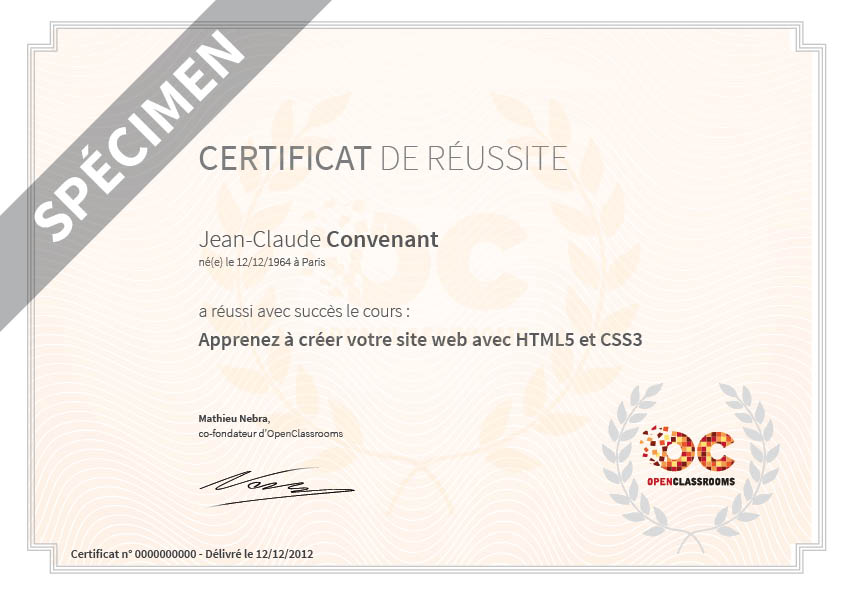
As you have just seen, it is difficult for a brand to succeed without influence.
Before you rush in, think about how you want to use influence to convert your prospects into customers.
Here are some influence goals you might want to achieve:
Develop Your Awareness
Imagine that each of your employees relays your branded content.
Most have profiles on the main platforms (and even on platforms where you don’t appear!). In addition, algorithms tend to favor content published by personal accounts, to the detriment of professional accounts.
Now your employees are supporting you, aim even higher!
By going through influencers, you benefit from their visibility by being introduced directly to a particularly targeted clientele.
Their influence allows you to improve your awareness and directly reach potential customers.
Let’s take the example of a success story: the Swedish watch brand Daniel Wellington became known exclusively online thanks to its partnerships with influencers from the four corners of the world without ever using any traditional advertising channels (television, radio, etc.).
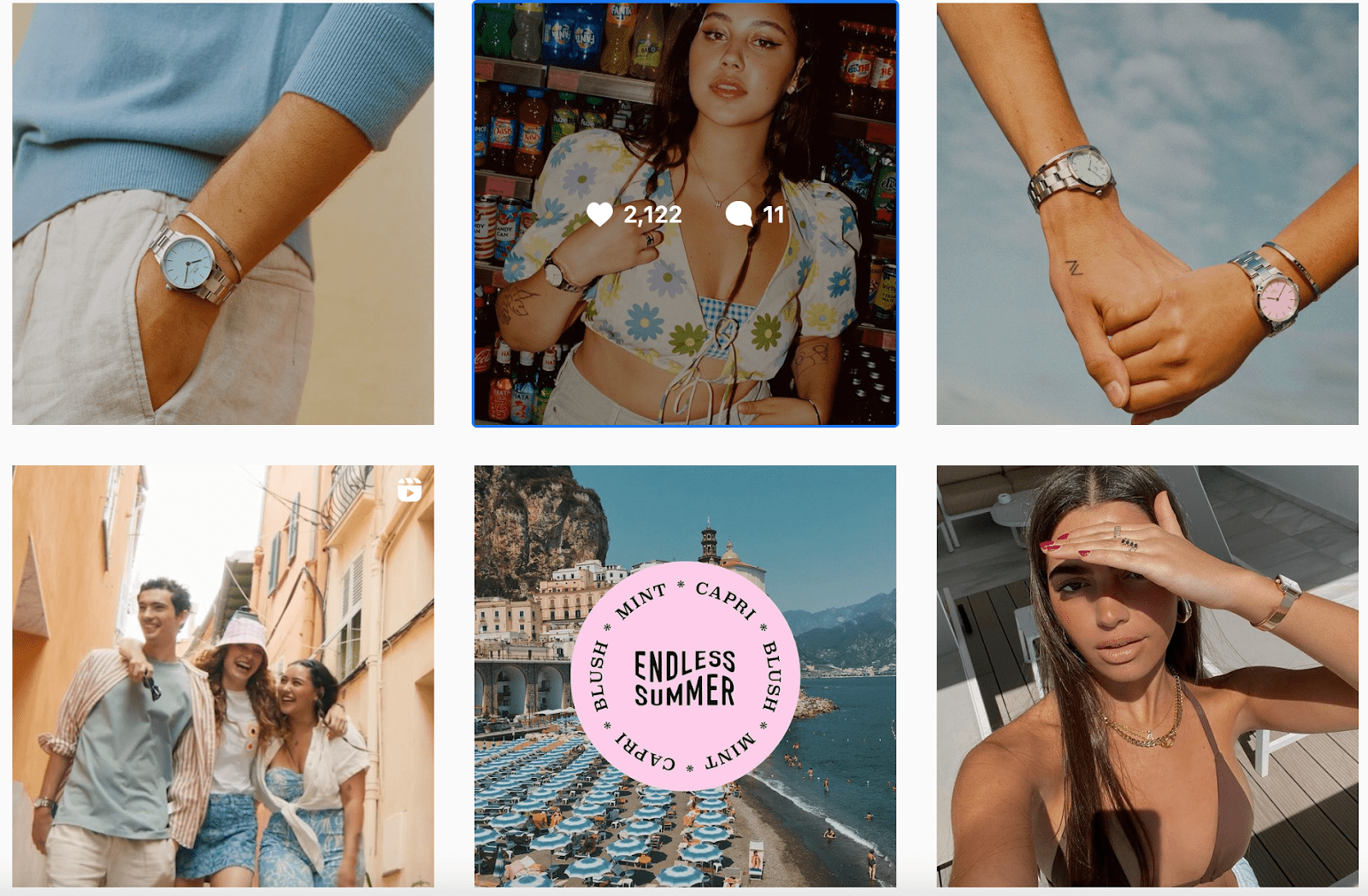
Have Your Brand Image Provide Reassurance
As consumers increasingly question brand communications, employee or customer advocacy strategies (where employees or customers speak for you) are emerging as a way to build trust.
Indeed, who better to talk about your products, services, values, and ambitions than the people who already know you?
Also, having real people express themselves, rather than a logo, enables you to create a connection and a feeling of closeness with the brand.
Increase Retention and Improve Your Conversion Rate
Unlike advertising campaigns, influencers deliver a more relevant message because of their connection with their community.
This genuine word-of-mouth advertising will help you build long-term trust with your target audience.
You can even decide to continue this relationship over the long term by building a group of ambassadors who will regularly reinforce your message.
For this to work, choose influencers who embody your brand through shared values, commitments, and passions.
For example, the makeup brand Anastasia Beverly Hills has been making waves on social networks over the last few years thanks to its numerous collaborations with famous online influencers, such as Amrezy (5.6M followers) and Alyssa Edwards (1.9M followers). They have collaborated with influencers who perfectly match their brand and glamorous style, creating limited edition products such as their famous eye shadow palettes.
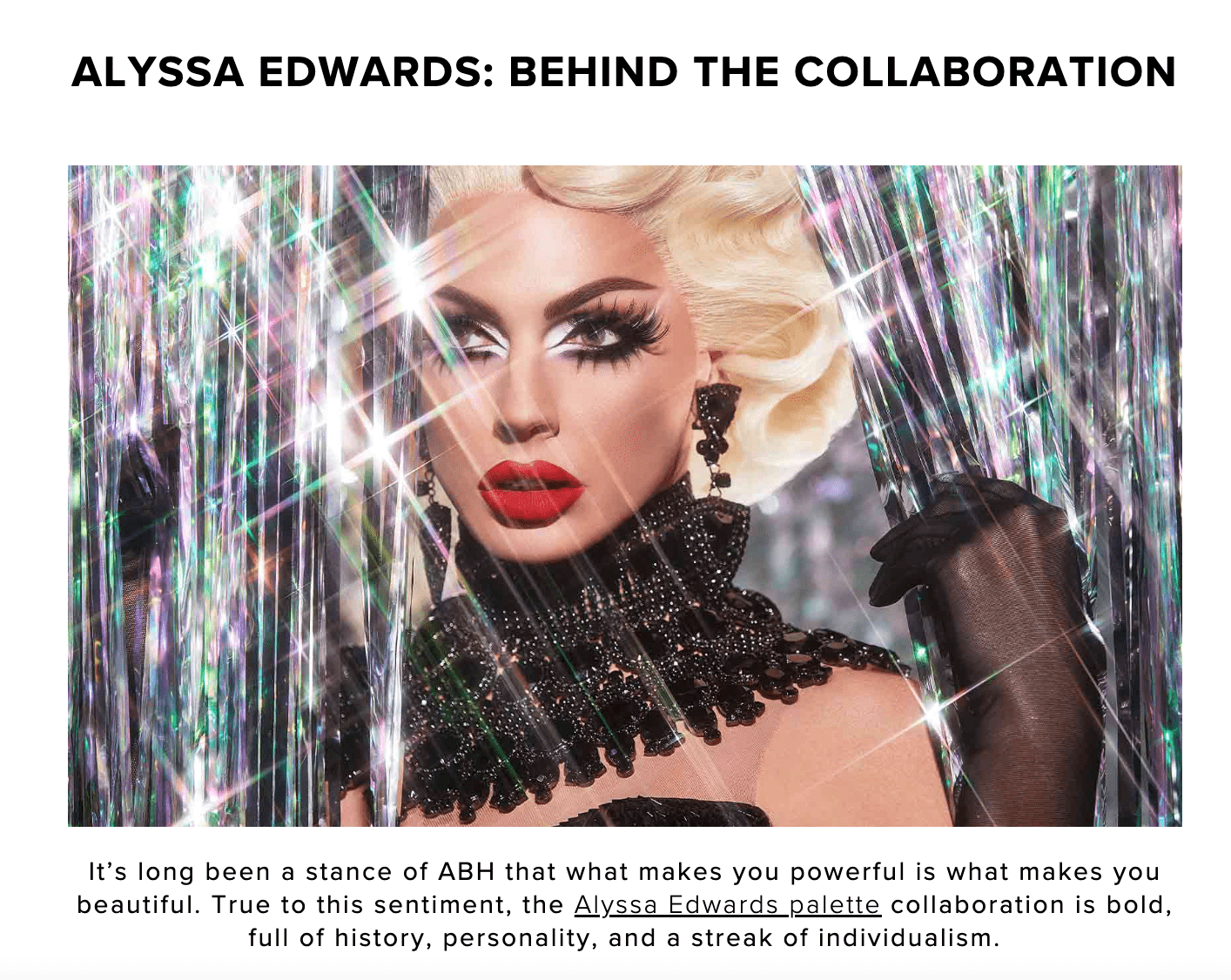
Encourage Engagement and Collect Data on Your Prospects and Customers
Are you having trouble generating engagement on your posts?
It is quite easy for an influencer to get reactions to their content. This is because social network algorithms favor accounts whose content is the most “liked,” commented on, and shared.
A brand account can have difficulty standing out against influencers whose loyal communities react quickly! These communities are content creators, generating genuine engagement with authentic and entertaining images, videos, and stories.
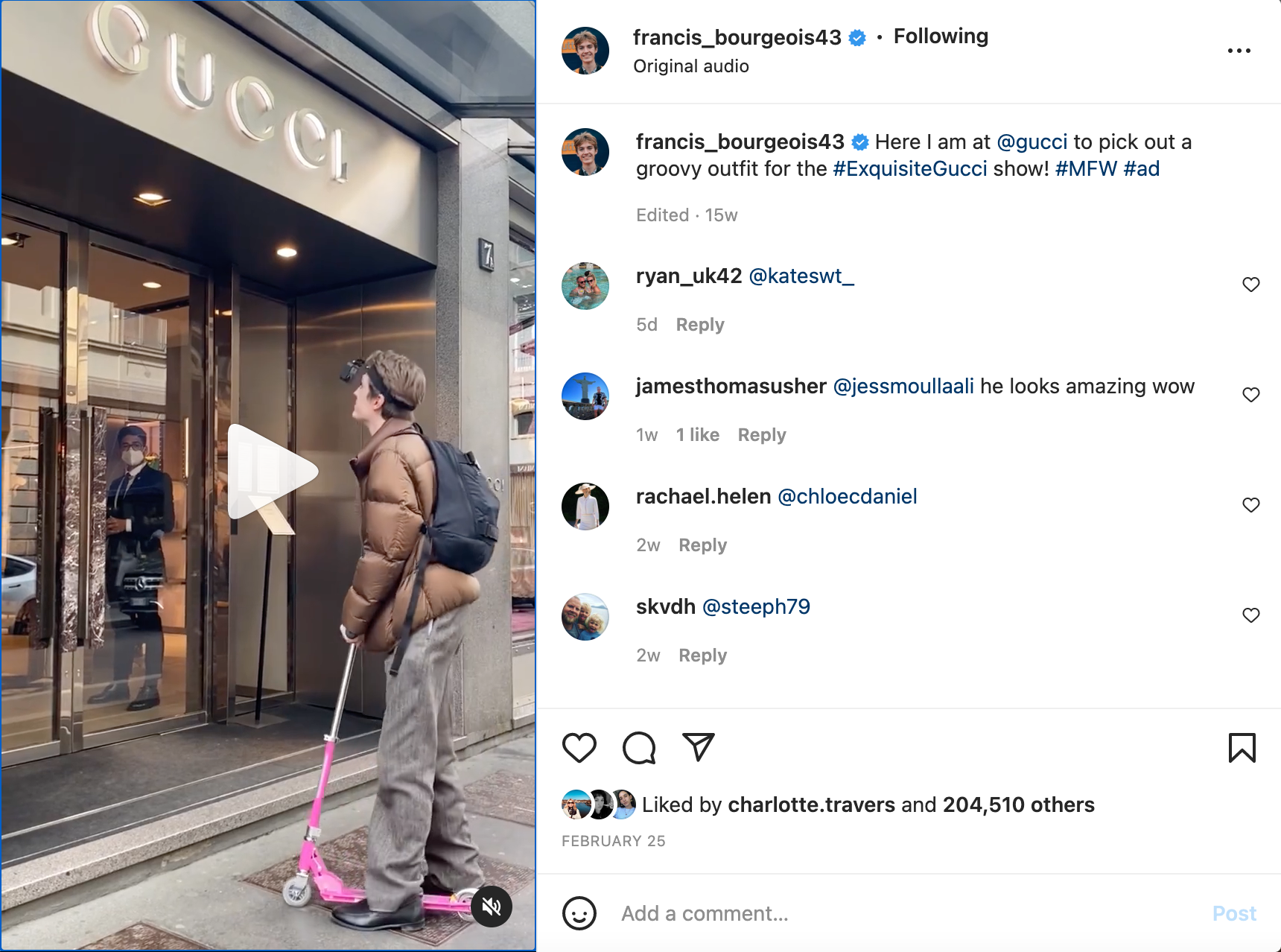
However, you don’t have to use influencers at all costs. For example, if your current customers are posting content about your brand, why not use it?
There’s nothing better to encourage reactions than to share UGC (User-generated content). At the same time, you will encourage others to share their feedback in the hopes that you will share it. This guarantees the snowball effect!
For example, the coffee shop La Colombe republishes influencer content but also the photos taken by its customers. A good way to make future customers’ mouths water while highlighting the testimonials of recent visitors.
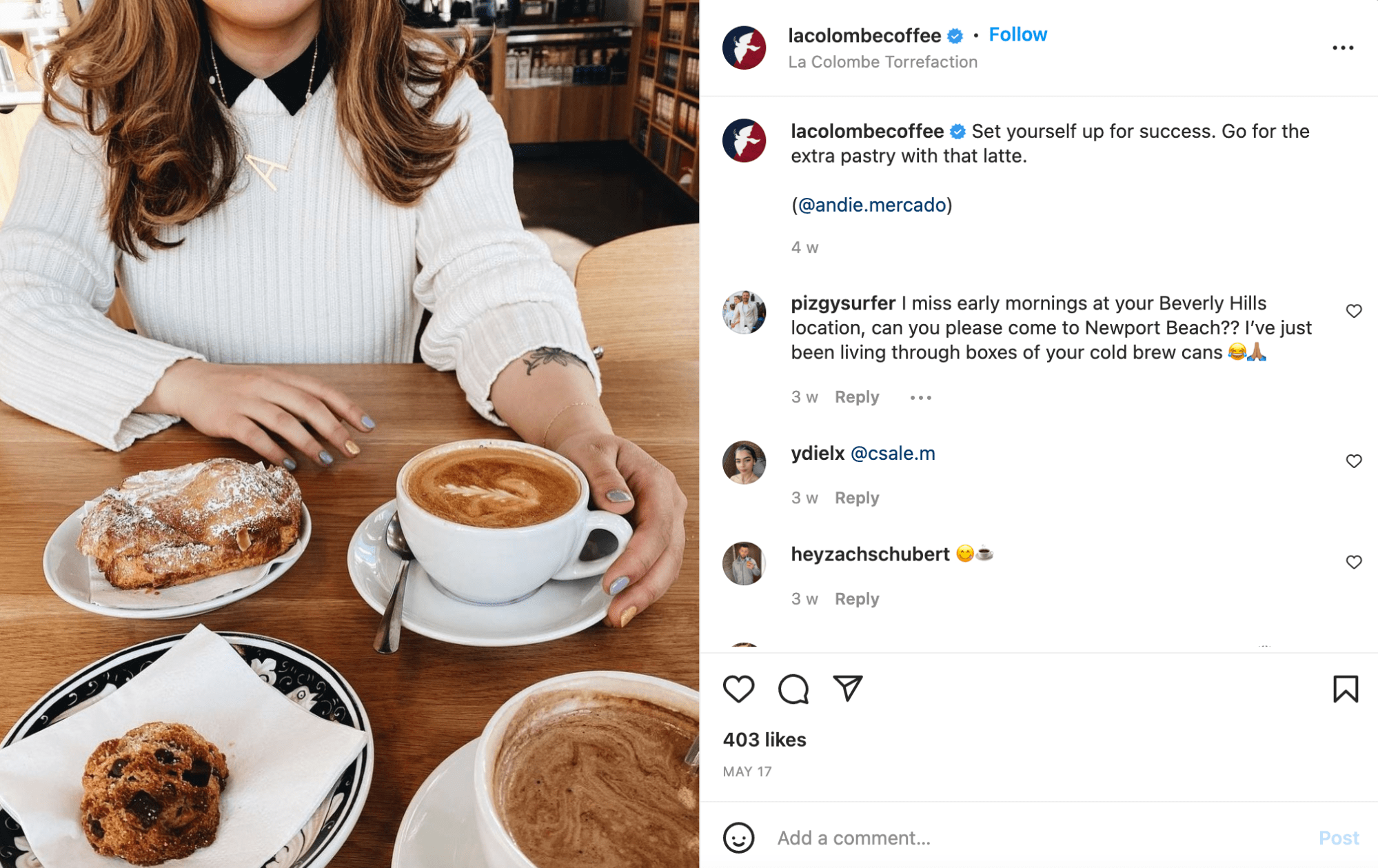
Take Care of Your Employer Brand
According to this study by Link Humans, an employer brand with a well-thought-out influence strategy can receive 50% more qualified applications than an employer brand that has not worked on its influence strategy.
That means if you want to find your future talent, it’s important that those who are already with you feel good... and that they make it known.
For example, working for Google means joining a team of 100k+ talents worldwide. Those employees are also great at telling their stories and even have a dedicated Instagram account: @lifeatgoogle.
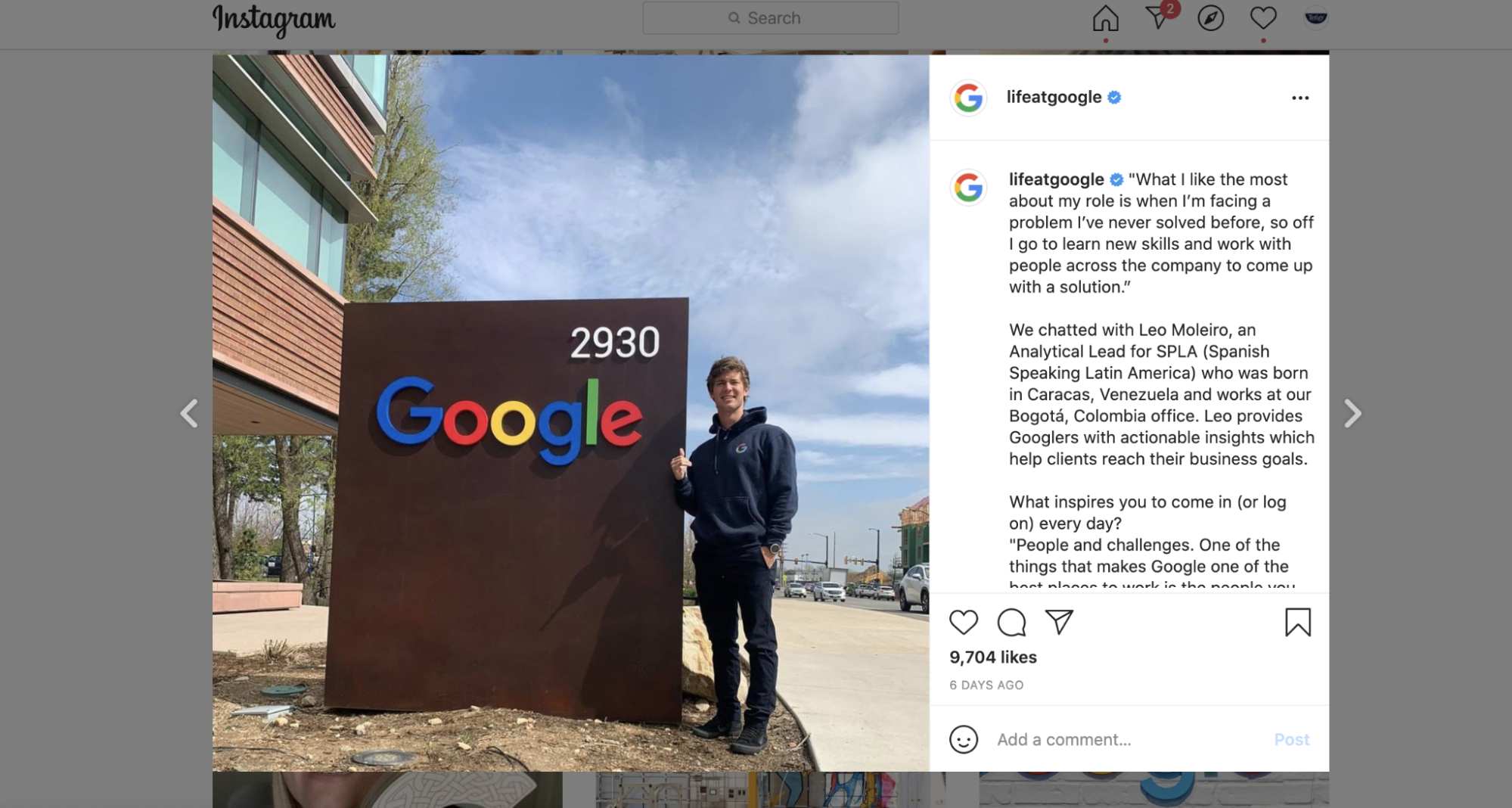
The Deditex Case Study

Do you have any ideas? Consider the theme document with what I would like to suggest to him.
Let’s Recap!
Any objective is possible and will be addressed by different influence mechanisms. For example:
Gain awareness.
Have your brand image provide reassurance.
Build customer loyalty.
Increase your conversion rate.
Encourage engagement.
Cultivate your employer brand.
To leverage influence, you first must identify the right people! The ones who will accurately convey your company's messages with identical values (if possible). Let’s look at that in the next chapter.
